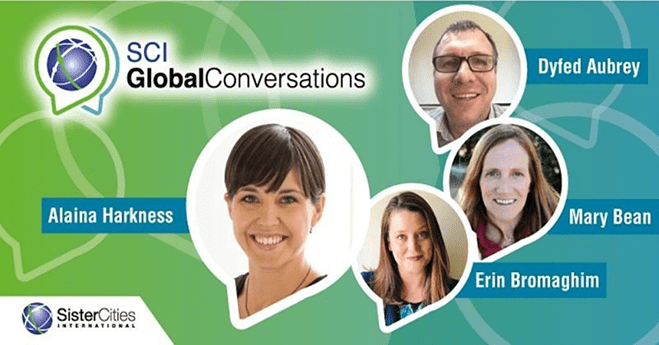The Sustainable Development Goals (SDGs) are 17 global developmental goals known officially as The 2030 Agenda for Sustainable Development. Each goal has its own set of measurable targets to be met by 2030. They cover a wide area of developmental issues including climate change, health and education, sustainable cities, multi-stakeholder partnerships, and others.
This initiative follows the success of the UN’s Millennium Development Goals (MDGs), which were launched in 2000 with targets to be met by 2015. This time around, what new or improved approaches are we banking on to lead to even more successful results for 2030?
The answer: multi-stakeholder partnerships. We know that resources from business organizations can help the cause. There have been significant efforts since the launch of the SDGs to encourage the private sector to take a more active role in partnering with civil society and the public sector towards achieving these goals. But why should businesses be interested?
A Tale of Two Types of Stakeholders
Governments exist to promote the public good and fulfill their social contract with the public. The primary driver of businesses, on the other hand, is profitability.
The success of a partnership between these sectors with very different priorities is contingent upon these entities realizing positive results from that partnership. These incentives are the drivers behind multi-stakeholder partnerships.
Through multi-stakeholder partnerships, government, civil society and businesses can achieve their objectives while addressing sustainability issues.
Drivers of Multi-Stakeholder Partnerships
For the public sector, the key driver is the realization that it needs to seek new forms of assistance outside of traditional donor relationships in order to advance its initiatives. The drivers for businesses are just as strong. Because profit is a core imperative, anything that threatens or boosts profit on a significant scale matters; one such thing is reputation. Nearly 80% of CEOs that responded to the UN Global Compact CEO Study 2016 see brand, trust and reputation as driving action on sustainability. With the impacts of climate change becoming more obvious and pronounced, customers and stakeholders may lose their trust and withdraw support from brands that are not sustainable.
Another driver that has a more direct impact than reputation is access to new markets. There is a $2.5 trillion development investment gap in pursuing the SDGs, which represents an opportunity for companies to be involved and support the achievement of SDG targets. The SDGs are creating new demand for products, services, infrastructure, consulting expertise, data technologies and a host of other things necessary to achieve the targets for the 2030 agenda.
Ways in Which Multi-Stakeholder Partnerships Help Achieve the SDGs
There are three types of partnerships that businesses can consider engaging in: partnerships for sharing knowledge, for sharing resources and services, and for sharing and creating standards. All three types of partnerships advance the SDGs because they:
- Facilitate inter-stakeholder dialogue on sustainability issues
- Combine resources, manpower and institutional capacities from the public and private sectors
- Pave the way for innovative approaches to reaching the SDGs
- Facilitate inter-sector knowledge transfer
A Call for Multi-Stakeholder Partnerships
Multi-stakeholder partnerships are important in achieving the SDGs. Achieving the SDGs requires a significant amount of resources, manpower and institutional capacities. National governments and the United Nations cannot accomplish the SDGs by themselves.
Businesses have a role to play in achieving the 2030 agenda, ensuring that they do well and do good. Multi-stakeholder partnerships support brand reputation, create new markets and mitigate risk. Further, ignoring sustainability and development issues can undermine long-term profitability.
Multi-stakeholder partnerships enable businesses and governments to pool together resources and skills, enabling them to come up with better innovations to achieve the SDGs within a shorter timeframe. When the SDGs are achieved faster and more effectively, both businesses and governments can prosper.
ADEC Innovations is a leading provider of ESG solutions, with expertise in delivering fully-integrated consulting, software and data management services. We help governments and organizations improve performance by recognizing challenges and providing effective solutions. To learn more about the SDGs, click here.




